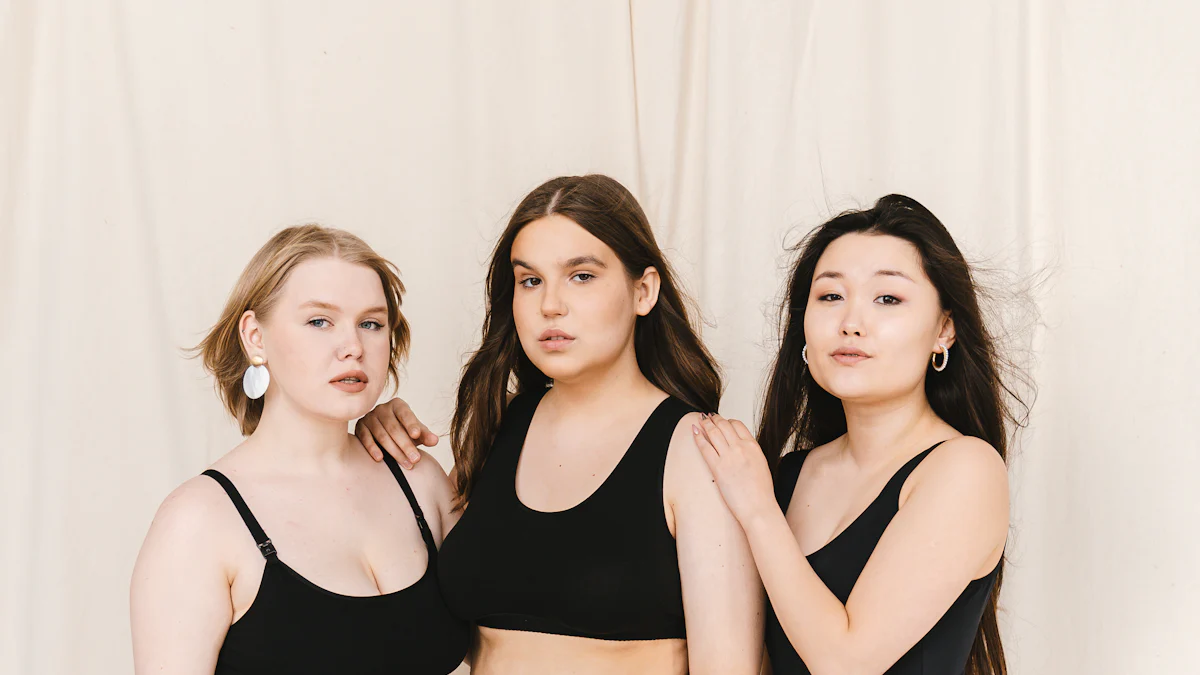
Fast fashion has dominated the swimwear industry for years, but a shift is happening. You’re now seeing more brands embrace private label swimwear, which focuses on sustainability, ethical production, and premium quality. This approach doesn’t just create better products; it aligns with your values as a conscious consumer. By choosing swimwear made with eco-friendly materials and fair labor practices, you’re supporting a movement that prioritizes the planet and people. Private label swimwear also offers unique designs and long-lasting value, giving you a stylish and responsible alternative to mass-produced fast fashion.
Key Takeaways
Private label swimwear emphasizes sustainability by using eco-friendly materials, reducing environmental impact compared to fast fashion.
Customization is a hallmark of private label swimwear, allowing brands to create unique designs that reflect their identity and meet consumer preferences.
Choosing private label swimwear means investing in higher quality products that are built to last, saving you money in the long run.
Ethical production practices in private label swimwear ensure fair labor conditions and transparency, aligning with the values of conscious consumers.
By supporting private label swimwear, you contribute to a movement that prioritizes creativity, ethics, and sustainability over mass production.
Private label swimwear offers a stylish alternative to fast fashion, providing both trendy and timeless designs that stand the test of time.
Understanding the benefits of private label swimwear empowers you to make informed purchasing decisions that positively impact the environment and society.
Understanding Private Label Swimwear and Fast Fashion
What is Private Label Swimwear?
Private label swimwear gives brands the ability to create their own unique swimwear lines without handling the manufacturing process themselves. It’s a partnership where manufacturers produce swimwear based on a brand’s specific designs, preferences, and requirements. This approach allows you to enjoy products that feel exclusive and tailored, rather than generic.
What makes private label swimwear stand out is its focus on customization. Brands can choose fabrics, colors, and even intricate design details to reflect their identity. For example, companies like La Isla and Mukura Swimwear specialize in helping brands craft collections that align with their vision. Whether it’s a bold bikini or a timeless one-piece, private label swimwear ensures every piece feels intentional and high-quality.
Some manufacturers, like Custom Swimwear Factory, also emphasize sustainability. They offer eco-friendly materials and innovative designs, which means you can find swimwear that not only looks good but also aligns with your values. These manufacturers make it easier for brands to deliver swimwear that feels personal and responsible.
What is Fast Fashion?
Fast fashion, on the other hand, focuses on speed and affordability. It’s all about producing trendy swimwear quickly and at low costs to meet ever-changing consumer demands. You’ve probably seen this in action—stores constantly updating their racks with new styles, often inspired by the latest runway looks.
This rapid production cycle comes at a cost. Fast fashion prioritizes quantity over quality, which often results in swimwear made from cheap, disposable materials. Brands like Shein and H&M dominate this space, offering swimwear that’s affordable but rarely built to last. While these options might seem convenient, they often lack the durability and ethical considerations you’d find in private label swimwear.
Key Differences Between Private Label Swimwear and Fast Fashion
When comparing private label swimwear to fast fashion, the differences are clear. Private label swimwear focuses on customization and exclusivity, giving you pieces that feel one-of-a-kind. Fast fashion, however, relies on mass production, which means you’re more likely to see the same swimsuit on countless others.
The materials used also set them apart. Private label swimwear often uses premium fabrics designed for comfort and longevity. In contrast, fast fashion swimwear typically uses low-cost materials that wear out quickly. If you’ve ever had a swimsuit lose its shape after just a few wears, you’ve experienced this firsthand.
Ethical practices are another major distinction. Private label swimwear brands often work with manufacturers who prioritize fair labor and transparency. Companies like La Isla and Custom Swimwear Factory ensure their processes respect both workers and the environment. Fast fashion, unfortunately, has a reputation for exploitative practices and a lack of accountability in its supply chains.
By choosing private label swimwear, you’re not just investing in better quality. You’re supporting a system that values creativity, ethics, and sustainability over shortcuts and mass appeal.
The Challenges of Fast Fashion in the Swimwear Industry

Fast fashion swimwear might seem appealing at first glance, but it comes with significant drawbacks. These challenges affect not just the environment but also the quality of the products you buy and the ethics behind their production. Let’s dive into the key issues.
Environmental Impact
Fast fashion swimwear leaves a heavy environmental footprint. Overproduction is one of the biggest problems. Brands churn out massive quantities of swimwear to keep up with trends, leading to piles of unsold inventory. Most of this ends up in landfills, creating unnecessary waste.
The materials used in fast fashion swimwear add to the problem. Many swimsuits are made from synthetic fabrics like polyester and nylon, which don’t break down easily. These non-biodegradable materials contribute to long-term pollution. When washed, they release microplastics into the water, harming marine life and ecosystems.
Carbon emissions also play a role. The fast fashion model relies on rapid production and global shipping. Factories often operate in countries far from where the products are sold. This process burns fossil fuels at every stage, from manufacturing to transportation, increasing greenhouse gas emissions.
According to environmental experts, synthetic materials in fast fashion swimwear are a major contributor to global pollution. In contrast, sustainable options like recycled plastics and organic fabrics can significantly reduce this impact.
Low Quality and Short Lifespan
Fast fashion swimwear often sacrifices quality for affordability. The disposable nature of these products means they’re not built to last. You might notice your swimsuit losing its shape, fading, or tearing after just a few uses. This happens because brands use low-cost materials and rush production to cut expenses.
Durability isn’t the only issue. Poor fit is another common complaint. Fast fashion brands prioritize speed over precision, so the designs often lack the attention to detail needed for a comfortable and flattering fit. You end up replacing these swimsuits frequently, which costs you more in the long run.
Ethical Concerns
The ethical issues surrounding fast fashion swimwear are hard to ignore. Labor exploitation is a widespread problem. Many factories operate under unsafe conditions, paying workers unfair wages. These practices prioritize profit over people, leaving workers vulnerable and undervalued.
Transparency is another area where fast fashion falls short. Brands rarely disclose where or how their products are made. This lack of accountability makes it difficult for you to know if your purchase supports ethical practices. Without transparency, it’s impossible to ensure fair labor and environmentally responsible production.
A growing number of consumers are demanding change. They want brands to adopt ethical practices and provide clear information about their supply chains. This shift reflects a desire for fairness and accountability in the fashion industry.
By understanding these challenges, you can make more informed choices. Opting for alternatives like Private Label Swimwear allows you to support sustainability, quality, and ethical production. It’s a step toward a better future for both fashion and the planet.
How Private Label Swimwear Addresses These Challenges
Sustainability
Sustainability sits at the heart of private label swimwear. Unlike fast fashion, which often relies on synthetic fabrics that harm the environment, private label swimwear brands embrace eco-friendly materials. Many manufacturers use recycled fabrics like ECONYL and Repreve, which are made from discarded fishing nets, plastic bottles, and other waste. These materials not only reduce pollution but also give you high-quality swimwear that feels soft and luxurious.
Smaller production runs also play a big role in minimizing waste. Instead of mass-producing swimsuits that may never sell, private label swimwear brands focus on creating just enough to meet demand. This approach avoids overproduction and ensures that every piece has a purpose. You’re not just buying a swimsuit—you’re supporting a system that values thoughtful production.
Packaging and shipping practices also reflect this commitment to sustainability. Many brands now use biodegradable or recyclable packaging to reduce plastic waste. Some even partner with carbon-neutral shipping companies to lower their environmental footprint. When you choose private label swimwear, you’re making a choice that benefits the planet.
According to Abely Fashion, ethical swimwear manufacturers prioritize sustainable materials like recycled plastics and regenerated nylon, addressing environmental concerns while maintaining style and comfort.
Ethical Production
Private label swimwear doesn’t just care about the environment—it cares about people too. Ethical production starts with partnering with manufacturers who ensure fair labor practices. Workers receive fair wages and work in safe conditions, so you can feel good about where your swimwear comes from.
Transparency is another key factor. Many private label swimwear brands provide detailed information about their supply chains. They show you where materials come from and how products are made. This openness builds trust and ensures that every step of the process prioritizes worker welfare and environmental responsibility.
By choosing private label swimwear, you’re supporting a movement that values fairness and accountability. You’re not just buying a product—you’re contributing to a system that treats workers with respect and dignity.
A report from Bondi Joe highlights how advancements in ethical swimwear production have made it easier for brands to adopt fair labor practices while reducing their environmental impact.
Higher Quality and Longevity
When it comes to quality, private label swimwear stands out. These brands focus on premium materials and meticulous craftsmanship, ensuring that every piece is built to last. Unlike fast fashion swimwear, which often loses its shape or fades after a few uses, private label options are designed to endure. You’ll notice the difference in how they fit, feel, and hold up over time.
Swimwear from private label brands is made to last multiple seasons. This durability reduces the need for frequent replacements, saving you money in the long run. It’s not just about buying less—it’s about buying better. You’re investing in pieces that stay with you, season after season.
This focus on longevity doesn’t mean sacrificing style. Private label swimwear offers designs that are both timeless and trendy, giving you options that feel fresh without being disposable. You get the best of both worlds: fashion-forward pieces that stand the test of time.
As noted by Do Good Swimwear, sustainable swim brands use materials like recycled yarns to create stylish and durable swimwear, aligning with the values of eco-conscious consumers.
Benefits of Private Label Swimwear for Consumers and Brands

For Consumers
Customization options for unique, personalized designs.
You deserve swimwear that feels like it was made just for you. Private label swimwear gives you that opportunity. Brands can tailor designs to reflect your personality and preferences. Whether you want bold patterns, minimalist styles, or specific color combinations, you’ll find options that match your vision. This level of customization ensures your swimwear stands out, making it uniquely yours.
Superior quality and fit compared to fast fashion alternatives.
Have you ever struggled with swimsuits that don’t fit right or lose their shape after a few wears? Private label swimwear solves this problem. These pieces are crafted with premium materials and attention to detail, giving you a fit that feels comfortable and looks flattering. You’ll notice the difference in how the fabric moves with you and holds up over time. It’s swimwear designed to make you feel confident, whether you’re lounging by the pool or diving into the ocean.
Long-term value and reduced environmental impact.
When you invest in private label swimwear, you’re choosing quality over quantity. These swimsuits are built to last, so you won’t need to replace them every season. This durability saves you money in the long run and reduces waste. Plus, many brands use eco-friendly materials and sustainable production methods. By choosing these options, you’re making a positive impact on the environment while enjoying swimwear that lasts.
For Brands
Opportunity to establish a unique brand identity in a competitive market.
Standing out in the crowded swimwear market isn’t easy, but private label swimwear gives brands an edge. It allows them to create collections that reflect their unique style and values. By offering exclusive designs, brands can attract customers who want something different from what fast fashion provides. This individuality helps build a loyal customer base and strengthens the brand’s identity.
Higher profit margins through exclusivity and premium pricing.
Private label swimwear offers brands the chance to position themselves as premium options. Exclusive designs and high-quality materials justify higher price points, leading to better profit margins. Customers are often willing to pay more for products that feel special and deliver lasting value. This approach benefits both the brand and the consumer, creating a win-win situation.
Alignment with consumer demand for sustainable and ethical products.
Today’s consumers care about where their products come from and how they’re made. Private label swimwear aligns perfectly with this demand. By focusing on sustainability and ethical production, brands can appeal to eco-conscious shoppers. Transparent practices and responsible sourcing build trust and loyalty, helping brands thrive in a market that increasingly values ethics and sustainability.
According to industry experts, brands that prioritize sustainability and customization see stronger connections with their customers, leading to long-term success.
Challenges Facing Private Label Swimwear
Higher Costs
The impact of premium materials and ethical production on pricing.
Private label swimwear often comes with a higher price tag. This happens because brands prioritize premium materials and ethical production methods. High-quality fabrics, like recycled nylon or organic cotton, cost more than synthetic alternatives. Manufacturers also invest in fair labor practices, ensuring workers receive fair wages and work in safe environments. These factors increase production costs, which reflect in the final price you pay.
While this might seem like a drawback, it’s important to consider the long-term value. You’re not just buying a swimsuit; you’re investing in a product that lasts longer and aligns with your values. The durability and ethical standards justify the higher cost, offering you a better return on investment compared to fast fashion swimwear.
Balancing affordability with quality and sustainability.
Finding the right balance between affordability, quality, and sustainability can be tricky for private label swimwear brands. They aim to offer products that meet your expectations without pricing themselves out of the market. This requires careful planning and innovation. For example, some manufacturers use advanced techniques to reduce waste during production, which helps lower costs without compromising quality.
As a consumer, you play a role in this balance. By understanding the value of sustainable and ethically made swimwear, you can make informed choices. Supporting brands that prioritize these principles encourages them to continue improving their processes and finding ways to make high-quality swimwear more accessible.
Scalability
Challenges in scaling production while maintaining quality and ethical standards.
Scaling production presents unique challenges for private label swimwear brands. As demand grows, maintaining the same level of quality and ethical standards becomes more complex. Larger production runs require more resources, which can strain supply chains and increase the risk of cutting corners.
To address this, many brands partner with manufacturers experienced in scaling operations responsibly. These manufacturers implement strict quality control measures and maintain transparency throughout the process. This ensures that even as production increases, the swimwear you receive meets the same high standards.
Balancing customization with efficient manufacturing processes.
Customization is a key feature of private label swimwear, but it can complicate production. Offering unique designs, fabrics, and features for each brand requires flexibility, which can slow down manufacturing. Balancing this level of personalization with efficiency is a constant challenge.
Some manufacturers tackle this by streamlining their processes. They use advanced technology, like digital design tools, to speed up customization without sacrificing quality. This allows brands to deliver personalized swimwear while keeping production timelines manageable. For you, this means getting a product that feels tailored without long wait times.
Market Competition
Competing with fast fashion's low prices and extensive reach.
Fast fashion dominates the swimwear market with its low prices and widespread availability. Competing against this can be tough for private label swimwear brands. They focus on quality and ethics, which naturally come at a higher cost. However, fast fashion’s affordability often appeals to consumers looking for quick and cheap options.
To stand out, private label swimwear brands emphasize their unique value. They highlight the benefits of premium materials, ethical production, and long-lasting designs. By choosing these brands, you support a movement that prioritizes quality over quantity and sustainability over shortcuts.
Educating consumers on the value and benefits of private label swimwear.
Many consumers don’t fully understand the advantages of private label swimwear. Educating you about these benefits is crucial for brands to succeed. They need to communicate why their products cost more and how they differ from fast fashion alternatives. This includes explaining the use of eco-friendly materials, ethical practices, and the long-term value of durable swimwear.
Brands often use storytelling to connect with you. They share the journey of their products, from sourcing materials to the final design. This transparency builds trust and helps you see the bigger picture. When you understand the impact of your choices, you’re more likely to support brands that align with your values.
According to industry experts, educating consumers about sustainability and ethical production creates stronger connections between brands and their audience. This approach fosters loyalty and encourages more conscious purchasing decisions.
Private label swimwear is transforming how you think about swimwear. It offers a refreshing alternative to fast fashion by focusing on sustainability, ethical production, and premium quality. You get swimwear that lasts longer, feels better, and aligns with your values. While challenges like higher costs and scalability exist, the benefits of customization, exclusivity, and long-term value make it worth considering. As more consumers like you demand transparency and eco-conscious choices, private label swimwear is set to lead the way in reshaping the industry. It’s not just a trend—it’s the future of fashion.
FAQ
What is Private Label Swimwear?
Private label swimwear allows you to create your own swimwear line without managing the manufacturing process. You can customize designs, materials, and features to match your vision. For instance, you might choose eco-friendly fabrics or unique styles that reflect your brand’s identity. This approach ensures your swimwear feels exclusive and tailored to your audience.
Pro Tip: Many manufacturers offer customization options, like fabric choices and design modifications, so you can bring your ideas to life effortlessly.
How Does Private Label Swimwear Work?
The process is simple. Manufacturers produce blank swimwear pieces that you can customize with your designs, logos, or branding. You select the styles, colors, and sizes that suit your target market. Once finalized, the manufacturer produces the swimwear under your brand name. This method helps you establish a unique identity in the competitive swimwear market.
Can I Start My Own Swimwear Brand with Private Label Swimwear?
Absolutely! Starting your own swimwear brand has never been easier. With private label swimwear, you can launch your line with as few as 80 pieces. You’ll have access to a wide range of styles, colors, and sizes. Adding your logo or custom tags is also an option, making your brand stand out. Within just a few weeks, you’ll have swimwear ready to showcase your label.
What Are the Benefits of Choosing Private Label Swimwear?
Private label swimwear offers several advantages:
Customization: You can design swimwear that reflects your brand’s personality.
Exclusivity: Your products feel unique and tailored, unlike mass-produced alternatives.
Sustainability: Many manufacturers provide eco-friendly options, aligning with modern consumer values.
Brand Identity: It helps you build a recognizable and loyal customer base.
How Long Does It Take to Produce Private Label Swimwear?
Production timelines vary, but most manufacturers deliver within 2-3 weeks after finalizing your designs. Factors like order size and customization complexity can influence the timeline. However, private label swimwear production is generally faster than creating a line from scratch.
Is Private Label Swimwear Expensive?
While private label swimwear may cost more than fast fashion options, it offers better value. Premium materials, ethical production, and customization justify the price. You’re investing in quality swimwear that lasts longer and aligns with your brand’s values. Plus, higher-quality products often lead to greater customer satisfaction and loyalty.
Can I Use Eco-Friendly Materials for My Private Label Swimwear?
Yes, many manufacturers specialize in sustainable swimwear. They offer materials like recycled nylon, ECONYL, and organic fabrics. These options reduce environmental impact while maintaining high quality. Choosing eco-friendly materials helps your brand appeal to environmentally conscious consumers.
Do I Need a Large Budget to Start with Private Label Swimwear?
Not necessarily. Many manufacturers offer flexible options for small businesses or startups. You can start with a minimum order quantity, often as low as 80 pieces. This allows you to test the market without a significant upfront investment. As your brand grows, you can scale production accordingly.
How Do I Choose the Right Manufacturer for Private Label Swimwear?
Look for manufacturers with experience in private label swimwear. Check their customization options, material quality, and production timelines. Brands like La Isla and Mukura Swimwear are known for their expertise. Reading reviews and asking for samples can also help you make an informed decision.
Why Should I Choose Private Label Swimwear Over Fast Fashion?
Private label swimwear prioritizes quality, sustainability, and ethical production. Unlike fast fashion, it offers unique designs and durable materials. You’ll also support fair labor practices and reduce environmental impact. By choosing private label swimwear, you align your brand with values that resonate with today’s conscious consumers.
